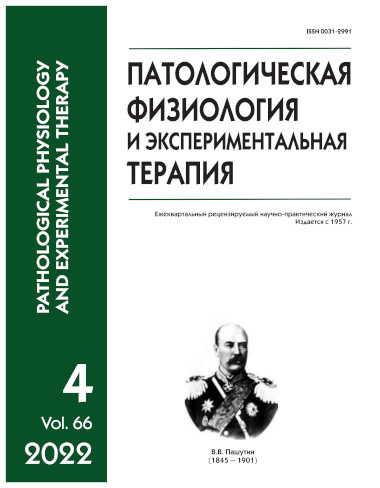The use of extended biochemical profile for predicting a sustained decline in the performance of highly qualified athlete
Abstract
Introduction. Identification of biochemical parameters to diagnose early symptoms of fatigue is especially important for youth athletes. However, markers for the strain of adaptive capabilities, specifically those involved in the regulation of the central nervous system (CNS), cardiovascular system (CVS), and bone tissue metabolism, are not included into the number of the markers that are recorded as a part of the stepwise complex examination (SCE) or the program of comprehensive medical examination of Russian national teams. These programs are designed for determining an expanded panel of biochemical parameters. Aim. To evaluate advantages of an expanded biochemical panel in predicting a persistent performance slowdown of an elite athlete. Methods. The subject of this study was a member of the Russian junior national cross-country skiing team (age, 18 years; height, 175.5 cm, body weight, 68.2 kg; 6 years in professional sports). As a part of this study, the athlete was tested on a h/p/cosmos venus 200/100r running treadmill with recording the oxygen consumption with a MetaMax 3B spirometer. Hematological tests were performed on a XN-1000 automated hematological analyzer. Serum concentrations of ALT, AST, CK, CK-MB, glucose, total protein, urea, triglycerides, and iron were measured on cobas c 311. Concentrations of β-CrossLaps, P1NP, N-MID fragment of osteocalcin, NT-proBNP, and myoglobin were measured using a cobas e 411 immunochemical analyzer. Lactate concentration in capillary blood was measured on a BTS-350 semi-automatic photometer with a respective reagent kit. Serum concentrations of endogenous steroid hormones, fat-soluble vitamins, and plasma concentrations of neurotransmitters were measured by UPLC-MS/MS. Results. The concentrations of standard biochemical markers measured as a part of SCE for athletes of the Russian national cross-country skiing team were within the sport-specific reference range. However, this athlete had high concentrations of P1NP, β-CrossLaps and NT-proBNP, and low concentrations of the N-MID fragment of osteocalcin and vitamin D. Conclusions. The biochemical profile of the ultrahigh-qualification athlete during the complete physical examination is not sufficient to reflect the adaptive processes induced by a physical stimulus. Additional monitoring of the state of CNS, CVS and the locomotor system together with biochemical tests during the training process would not only provide assessment of the current functional state but also predict threatening maladaptation and help identifying a possible mechanism of steady fatigue.






